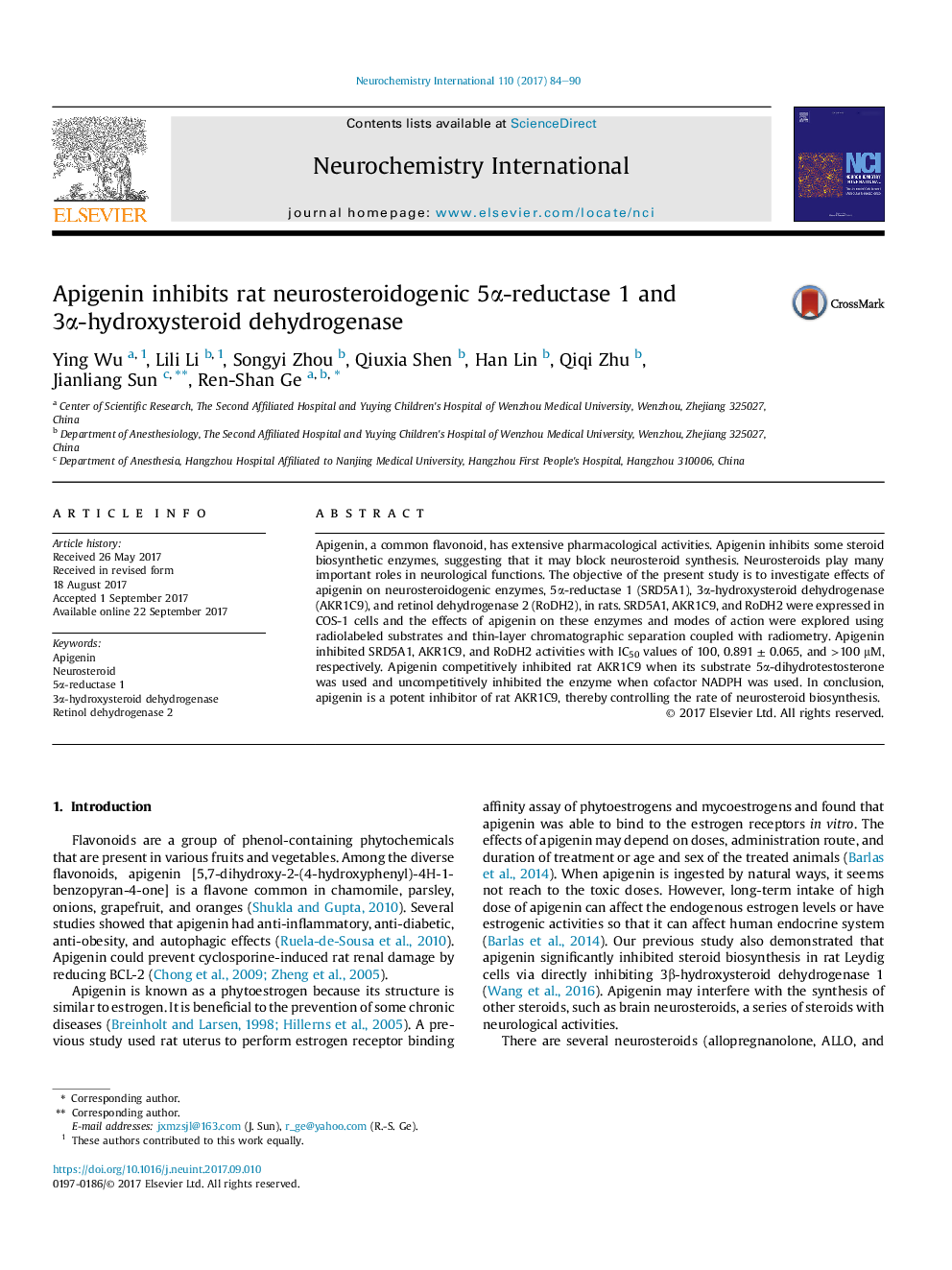| کد مقاله | کد نشریه | سال انتشار | مقاله انگلیسی | نسخه تمام متن |
|---|---|---|---|---|
| 5534645 | 1551265 | 2017 | 7 صفحه PDF | دانلود رایگان |

- Apigenin inhibits synthesis of neurosteroids.
- Apigenin competitively inhibits AKR1C9.
- Apigenin is more potent to inhibit AKR1C9 than SRD5A1.
- Apigenin does not inhibit RoDH2.
Apigenin, a common flavonoid, has extensive pharmacological activities. Apigenin inhibits some steroid biosynthetic enzymes, suggesting that it may block neurosteroid synthesis. Neurosteroids play many important roles in neurological functions. The objective of the present study is to investigate effects of apigenin on neurosteroidogenic enzymes, 5α-reductase 1 (SRD5A1), 3α-hydroxysteroid dehydrogenase (AKR1C9), and retinol dehydrogenase 2 (RoDH2), in rats. SRD5A1, AKR1C9, and RoDH2 were expressed in COS-1 cells and the effects of apigenin on these enzymes and modes of action were explored using radiolabeled substrates and thin-layer chromatographic separation coupled with radiometry. Apigenin inhibited SRD5A1, AKR1C9, and RoDH2 activities with IC50 values of 100, 0.891 ± 0.065, and >100 μM, respectively. Apigenin competitively inhibited rat AKR1C9 when its substrate 5α-dihydrotestosterone was used and uncompetitively inhibited the enzyme when cofactor NADPH was used. In conclusion, apigenin is a potent inhibitor of rat AKR1C9, thereby controlling the rate of neurosteroid biosynthesis.
122
Journal: Neurochemistry International - Volume 110, November 2017, Pages 84-90